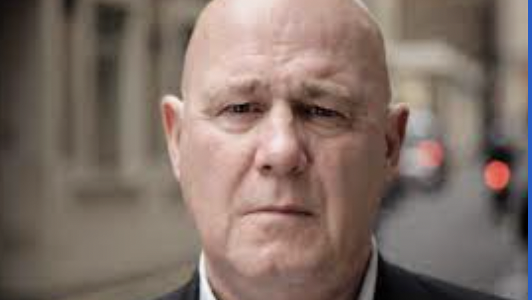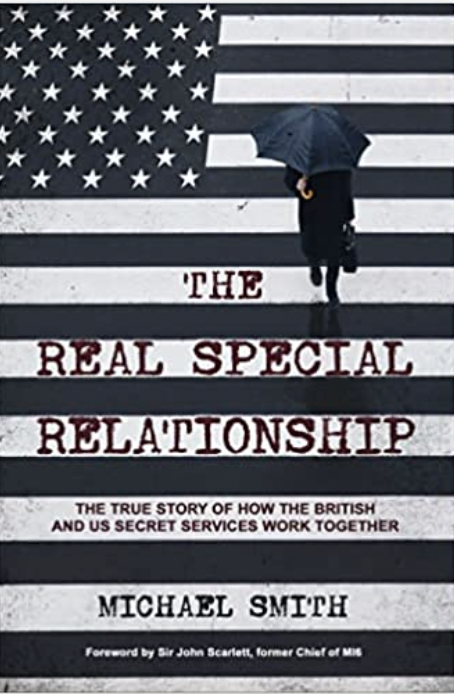
“Matter of Factly Intimate” Henry Kissinger

The Special Relationship between America and Britain is feted by politicians on both sides of the Atlantic, when it suite their purpose and just as frequently dismissed as a myth, not least by the media, which announces its supposed death on regular basis. The two countries are bound together more closely than either is to any other ally.
Michael Smith, who served in British military intelligence, reveals in The Real Special Relationship, how it all began, when a top-secret visit by four American codebreakers to Bletchley Park in February 1941, ten months before the Us entered the Second World War, marking the start of a close collaboration between the two nations that endures to this day. Once the war was over, and the Cold War began both sides recognised that the way they had worked together to decode German and Japanese ciphers could now be used to counter the Soviet threat. Despite occasional political conflict and public disputes between two nations, such as during the Suez Crisis, behind-the-scenes intelligence sharing continued uninterrupted, right up to the recent Russian invasion of Ukraine. Smith brings together characters from Winston Churchill and Ian Fleming to Kim Philby and Edward Snowden, who have helped shape the security of our two nations, Supported by in-depth interviews and he reveals the mysterious workings of MI6 and CIA and all those who work to keep us safe.
In 1993, Anglo- American “Special Relationship” entered one of its periodic lows, as then prime minister John Major, had even banned the phrase to distance himself from his predecessor, Margaret Thatcher, and to make clear to those around him that maintaining relations with Europe was Britain’s main priority. The election of Bill Clinton in 1992, as the new US president, believed Major’s Conservative party had worked against his campaign.
When the two leaders met first time in Washington, the British press was “ Almost ghoulish in its anticipation of rancor” recalled Ray Seitz, the US ambassador to the UK. Just before Major arrived at the White House, Seitz heard an aide joke with Clinton: “ Don’t forget to say “special relationship”. “ Oh Yes” Clinton replied throwing his head back with a laugh. “ How could I forget”. Many Britons experience it as always being the junior partner. For Americans, there is the perennial question: What do the Brits do for us? For the rest of the world, it can seem a familiar totem that London reaches for whenever it needs to puff up Britain’s shrinking global role.
The partnership’s foundations lie in the deep bonds first forged between American and British spies more than 80 years ago. Since 1941, US and UK spooks have been exchanging information in a manner so frank that Henry Kissinger once said “ matter-of-factly intimate”. It is an effective and important alliance that continues every day whatever the state of political relations and is highly valued by spy chiefs on both sides of the Atlantic.
The relationship’s beginnings ( in which Ian Fleming, creator of James Bond, played a small role). Just before midnight on February 8, 1941, four American officers were landed from a British warship at the mouth of the Thames Estuary and driven to Bletchley Park, the UK’s code-breaking nerve centre. The Americans brought with them their top secret purple machine, which deciphered Japanese communications. In return, they were given details about Bletchley’s cracking of Germany’s Enigma cipher. The exchange demonstrated extraordinary mutual trust.
The intelligence the code breakers shared, even though America was yet to enter the war and there was no bilateral treaty. Toasted with Sherry that night, the partnership was formalised five years later in an agreement to continue, ‘unrestricted’ cooperation in communications intelligence.
The collaboration flourished ever since and now extended to Australia, New Zealand and Canada, the five eyes of intelligence sharing agreement.
Traitors and security breaches on both sides have strained trust, as well as institutional rivalries. The Irish roots of some US officials made them Anglophobes. There have been shameful moments, such as 1953, CIA/MI6-sponsored coup in Tehran, and Saddam Hussein’s non-existent weapons of mass destruction. in the UK, this century, both Labour and the Tory party ignored ‘repeated warnings’ from intelligence officials about China, including “an ill-judged attempt to usher in a golden era of relations.
The alliance may have helped avert nuclear conflagration during the 1962 Cuban missile crisis, it sprang into action after the 9/11 terror attacks on the US, and it provided joint intelligence that warned us all about Vladimir Putin’s plan for a full-scale assault on Ukraine. In July Richard Moore, head of MI6 described how both sides shared their “most intimate secrets with one another”. A few weeks earlier Chris Wray, head of the FBI, said his agency had “no closer partner than Britain’s MI5”.
Smith’s account of the battle for the Falkland Islands, at one heated meeting in the White House situation room, Jeane Kirkpatrick, US Ambassador to the UN, had to forcefully remind us why US strategic interests were better served by supporting Britain than Argentina. When Argentinian troops invaded the Falkland Islands on 2 April 1982, it was assumed that firm support would be forthcoming from the United States, Britain’s closest ally in Nato, and the traditional special relationship between two major English-speaking countries. Therefore after voting in the United Nations Security Council for Resolution 502 calling for Argentina’s withdrawal from the Islands, the United States government seemed to be assuming the role of mediator rather than that of firm supporter, there was no little concern and resentment in Britain. It was not widely appreciated that the United States was the ally of Argentina as well as of Britain, and moreover, had a special relationship with Latin America – the Inter-American Treaty of Reciprocal Assistance” signed at Rio de Janeiro on 2 September 1947- which could have affected by the position adopted in the Falklands dispute.
The Real Special Relationship: The True Story of How the British and US Secret Services Work Together by Michael Smith, Simon & Schuster £25, 576 pages.
